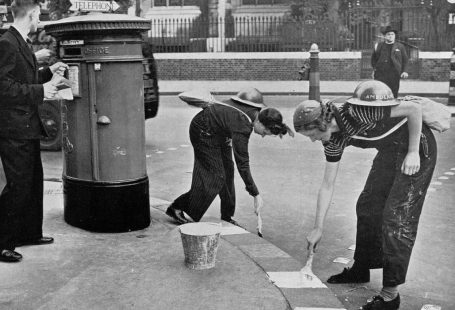This week we have added 68,516 brand new pages to The Archive, covering an astounding 166 years of history, as well as three countries and two continents. We have one brand new title joining us this week, namely the Bombay Gazette, as well as updates to five of our existing titles.
Register now and explore the Archive
The Bombay Gazette provides a sobering record of British colonial governance in India. Founded in 1789, it was initially known as the Bombay Herald and was Bombay’s first English-language newspaper. ‘Printed and Published with the Permission of Government,’ the publication became known as the Bombay Gazette from 1791.
The city’s leading newspaper for many years, it traces Bombay’s (now known as Mumbai) development into an important trading post. It contained local interest articles regarding Bombay, obituaries of British residents, as well as birth and marriage notices. In addition to this, it carried advertisements for a plethora of local services (including dentists) and products, like the latest fashions for the ‘ladies of Bombay.’
By the 1860s, the Bombay Gazette was being published daily, and was ‘circulated throughout the Presidency, British India, and the East.’ You can search nearly 40,000 pages of this title on The Archive, covering the years 1792 to 1868.
Bombay Gazette | 11 January 1850
Meanwhile, we have been busy updating our existing titles on The Archive. We have updates to two of our Irish titles – Sport (Dublin) and the Meath Herald and Cavan Advertiser, County Meath’s earliest newspaper. Sport (Dublin), as the name suggests, was an Irish sports newspaper published in Dublin, reporting on an array of different sports including Gaelic football, athletics, racing and fishing. It also covered the happenings of Irish theatre.
We continue to add new pages to last week’s latest arrivals, South Nottingham’s weekly West Bridgford Advertiser and Luton’s photographic Beds and Herts Pictorial. Rounding off this week’s updated titles is the charmingly named Smethwick Telephone. Sadly now out of print, this West Midlands publication was overwhelmingly popular during the 1960s, where it had a circulation of 20,000 in a town of 55,000.
William Wilberforce – ‘Justice for Millions’
On the front page of the Bombay Gazette, 15 August 1792, the ‘Parliamentary Intelligence’ is communicated from many months before. The dissemination of news from England to India necessarily took a long time, travelling via land and sea before reaching Bombay. Consequently, this report from parliament is from April 1792, and contains a speech from MP William Wilberforce.
William Wilberforce is of course best known for his crusade to abolish the slave trade, and his speech in 1792 was a memorable one as he again tried to appeal to parliament in order to ban the savage practice. The Bombay Gazette reports how Wilberforce ‘demanded justice for millions, who could not ask for it themselves.’
William Wilberforce by Joseph Wright | Illustrated London News | 22 September 1934
In trying to convince the House of Commons to abolish slavery, Wilberforce in this speech highlights the horrors of the middle passage between Africa and the West Indies. He gave the following statistics relating to the mortality rates of slaves suffering the awful voyage: of a ship of 450 slaves, 200 were lost. One captain reported how, unsurprisingly, the ‘slaves had a fixed melancholy and dejection, that they wished to die, that they refused to eat [and] sometimes threw themselves overboard.’
Wilberforce went further and highlighted the ‘habit of ferocity’ prevalent on these ships, which abounded with ‘instances shocking to humanity.’ He cited the torture of a pregnant fifteen-year-old girl, and the House, incensed, demanded to know the name of the perpetrator – one Captain Kimber.
Wilberforce finished his speech by demanding:
That the Trade carried on by British subjects in the exportation of Slaves from Africa to the West Indies Islands ought to be immediately abolished.
Following this speech, Home Secretary Lord Melville proposed a solution of ‘gradual abolition,’ which was passed by 230 to 85 votes. But this act had very little impact, and tragically the practice of slavery continued throughout the following decades, until the Slavery Abolition Act was passed in 1833, which abolished slavery throughout much of the British Empire. Wilberforce, after suffering through failing health for many years, died just three days after hearing that the act had been secured, and was buried in Westminster Abbey.
New Titles
Title |
Years Added |
| Bombay Gazette | 1792, 1813-1814, 1816-1841, 1850-1856, 1858, 1860-1868 |
Updated Titles
This week we have updated five of our existing titles.
You can learn more about each of the titles we add to every week by clicking on their names. On each paper’s title page, you can read a FREE sample issue, learn more about our current holdings, and our plans for digitisation.
Title |
Years Added |
| Sport (Dublin) | 1880-1896 |
| West Bridgford Advertiser | 1915-1930 |
| Meath Herald and Cavan Advertiser | 1885, 1888 |
| Beds and Herts Pictorial | 1919-1927, 1929, 1931-1935, 1951-1958 |
| Smethwick Telephone | 1889 |
You can keep up to date with all the latest additions by visiting the recently added page. You can even look ahead to see what we’re going to add tomorrow.









